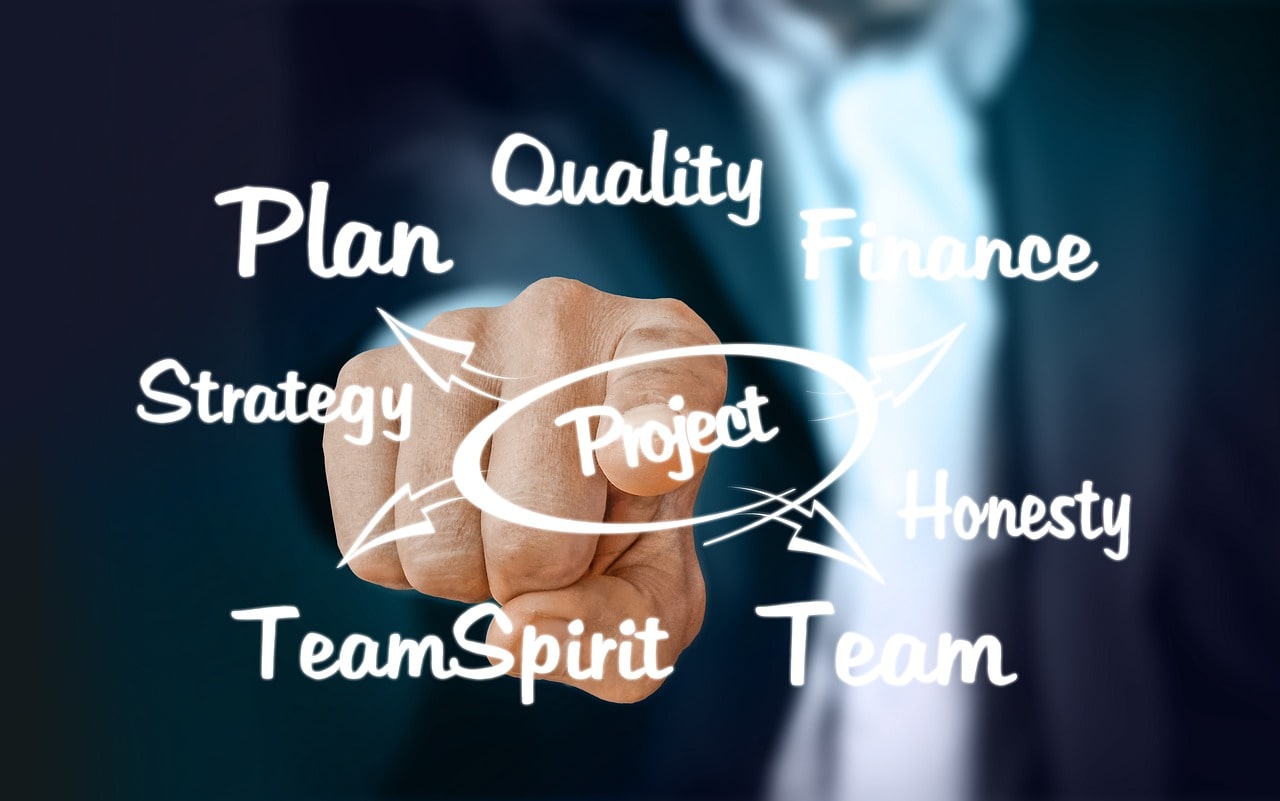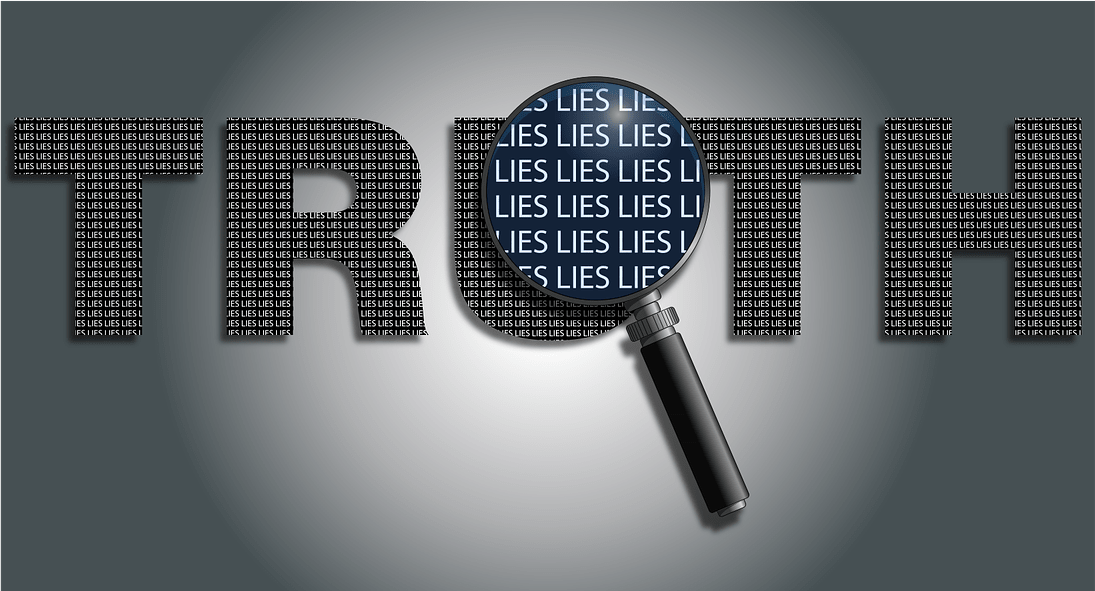During project management, the temptation to solve problems in a simple and “silent” manner is frequent. Solve “silently” without, of course, informing stakeholders. But is it really the right choice? Is it worth hiding the truth while managing projects?
The temptation, for the Project Manager (as for any human being), is often to take the easy route and provide a distorted version of the truth.
Is it not better to solve a problem without informing anyone and continuing as if nothing had happened? The problem is solved and nobody knows that this has appeared…
CONTENT INDEX
- The importance of ethics and honesty in project management
- Build an ethics program that helps in project management
- Project management can be undermined by lies.
- Receive the truth
- Oppose and execute. Team support in project management
- Reward the messenger
- The truth, sooner or later, always comes out
Often hiding the problem is the simplest option, one that makes everyone happy immediately… but it is rather rare that this option, convenient in the short term, does not return back in the future with increased effects.
This choice can, in fact, damage in the long term a relationship with the client or the project team.
In each project, having the strength to be honest with clients and project teams can lead to a load of criticism and stress that we often do not feel we deserve. But when you are sincere and transparent, the trust and respect you get from the people are infinitely more valuable when compared to the reputational consequences you get from acting inappropriately.
Truth is actually a tool in project management. Let’s see why.
The importance of ethics and honesty in project management
Ethics is a concept commonly used to refer to the morality of an individual or an organization. If well applied, ethics can become a principle that improves decision-making processes.
However, ethics do not describe a specific standard or conduct. Ethics is linked to an intimate reflection and helps to determine what the correct path is and how people should act.
Ethics must be expressed and practiced within the organization by identifying:
- the way a person should behave,
- the correct and accepted behaviors, without ambiguity.
At the basis of ethics is honesty, which should be part of every relationship, interaction, decision or action taken by an organization and its employees.
Here are 6 steps to help improve relations between organizations and employees, orienting the application of ethics through honesty and truth.

1) Build an ethics program that helps in project management
Leadership without ethics is not leadership. In fact, project managers must understand and live according to this principle.
Building a culture of ethics requires leaders to be clear about the organization’s vision based on values and passion for that idea.
In order to create a culture of complete honesty, direct dialogue and integrity, it is necessary to establish a culture that focuses on it as much as other topics such as quality, customer service, time management and costs, resources, procurement or the pursuit of market success.
2) Project management can be undermined by lies.
Tell the truth Abraham Lincoln said:
Is it not better to solve a problem without informing anyone and continuing as if nothing had happened? The problem is solved and nobody knows that this has appeared…
This means that nobody in this world can continue to lie successfully for a long time. A simple lie may, perhaps, not be considered once or twice, but it will not be a long-term strategy.
The person or organization with weekly excuses will soon be known as unreliable and a danger to the rest of the teams.
And some bad habits and people can even affect the reputation of an entire organization.
Always telling the truth, regardless of the consequences, is a significant first step. It is a modus operandi that can be implemented within organizations in order to support ethical behavior, starting from the leader.
Everyone expects the project manager to behave honestly and assume full responsibility. This sets a benchmark for ethical behaviors expected by all other team members. As the Project Management Institute itself emphasizes in the sixth version of the PMBOK.
To support this policy, it is mandatory to create a fear-free environment. Fear is the main cause of keeping the truth for ourselves.
It is important to recognize that listening to absolute truth requires an open mind. We must also have the ability to admit things that we may not want to hear. Finally, but not least, one must be mature enough not to take things personally.
In short, being honest is as important as using a good project management software or actively engaging in resource management.
3) Receive the truth
Although it is important to tell the truth, it is equally important to receive it. What people tell us is an essential part of the message, but non-verbal communication is equally important – or even more important – than the message itself.
As human beings, we tend to respond to criticism with a defensive behavior. This attitude is an enemy of the truth.
It is essential to understand that it is not necessary to attack when we are exposed to a truth, even if inconvenient.
Truth examples could be as simple as feedback on a performance during a meeting. They can also be more complex as a criticism of how we think or how we conduct the project. Therefore, if we react in a receptive and non-defensive way to what others are trying to say, opportunities for ethical behavior are opened up.
4) Oppose and execute. Team support in project management
If correct and ethical behaviors and policies are in place, employees and collaborators should be encouraged to express their ideas.
When some decisions or actions are taken, if you do not agree with what is being said, the best way to proceed is to always say what you have in mind. It is not bad to disagree and you can provide arguments and examples of the possible consequences. In short, tell the truth about what you think.
It is hard enough to express disagreement, but once said, an action must take place. When project managers decide and execute, they need the full support of team members. Execution does not necessarily mean agreeing, but it shows discipline, loyalty and participation in the organization.
Doing and saying things behind a project manager is not constructive and causes further unethical actions.
Project managers must then establish guidelines that allow team members to express their ideas at any level, even for complex projects.
5) Reward the messenger
Project managers are considered models to follow. The way they listen and talk should be the right way to behave.

Listening to the truth requires much more than accepting it. It requires the ability to look at the other person and try to understand his point of view. All making it feel at ease and appreciated in an environment free from judgments and prejudices.
6) The truth, sooner or later, always comes out.
No further comments on this are required. Not telling the truth does not buy time, it wastes it!
Postponing information, researching who said what and when, dozens of questions to eradicate lies and excuses… all this requires time and energy. This time and this energy would be better spent on doing things useful to the project.
On the other hand, by informing the interested parties about a problem, they could have the knowledge, skills and experience to help find a simple solution.
Moreover, other people may have planned some activities in relation to planned work through the gantt chart. Small changes to this could lead to a really important impact.
Another aspect to consider, is that a failure will diminish all the benefits that can be obtained by hiding the problems.
A failed project cost many times more than what could have been saved by solving the problems that have been hidden.
But it is not just about money, there is also the reputation of people.
A failed project can have a dangerous cascading effect. It’s not worth it!
Constantly showing a high degree of honesty, trust and integrity to everyone throughout the project life cycle helps to improve the chances of success. Cement the position of solid leader and gain the respect both of the client and of the project team.
A relationship based on honesty and trust with stakeholders, colleagues and project teams should create an environment of mutual respect.
As a result, this environment should produce a more efficient production environment in which the staff is willing to do ist best in order to provide a truly excellent product.
Have you ever been faced with such a choice? Tell us about your experience.




